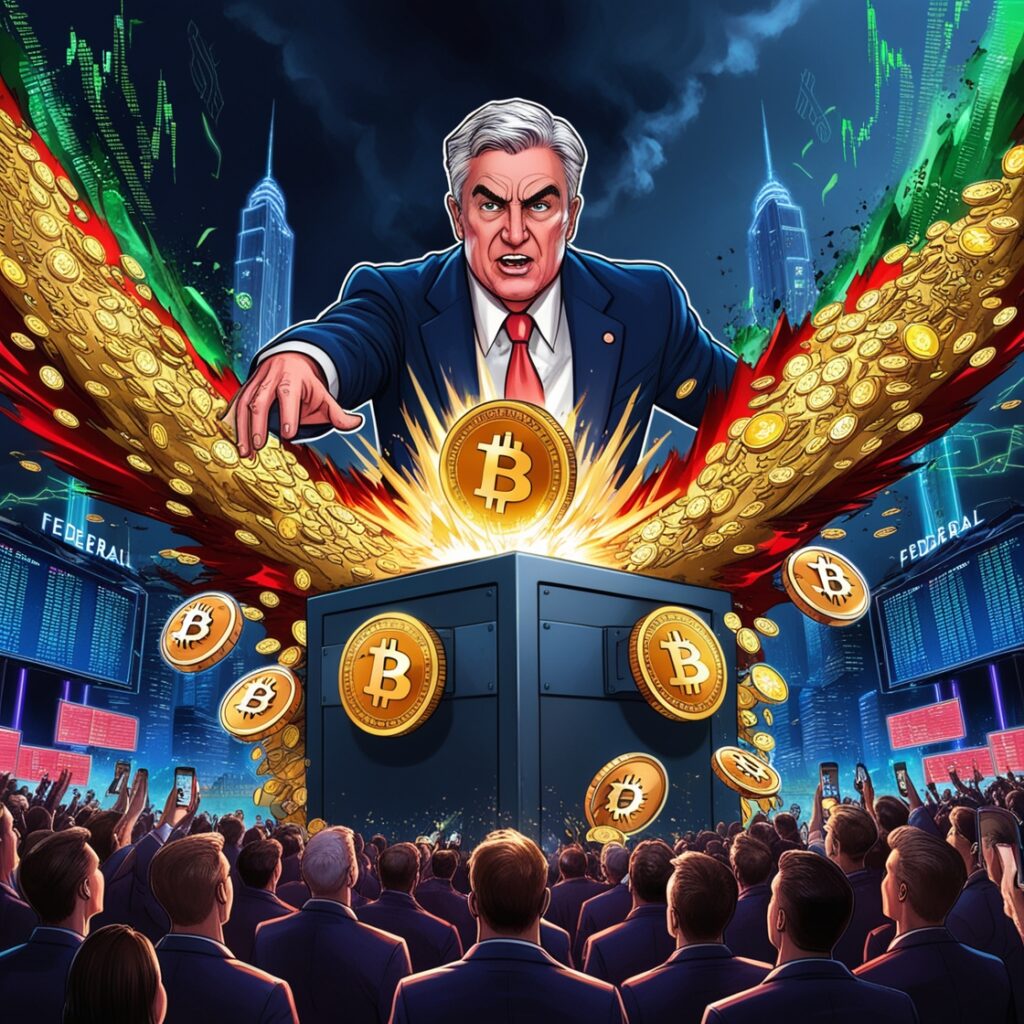The market is bracing for a $4 trillion “watershed moment,” but since early June, bitcoin and other cryptocurrency values have dropped precipitously, wiping off $300 billion from the total cryptocurrency market.
Following Treasury Secretary Janet Yellen’s warning about the Federal Reserve’s interest rate policy, the price of bitcoin has plummeted down from above $70,000 earlier this month as traders try to make adjustments.
The world’s largest asset management BlackRock has cautioned analysts that a “unprecedented” scenario is developing that might affect the price of bitcoin and the cryptocurrency industry, just as one bitcoin and crypto legend is betting on a significant tilt towards China.
The analysts at BlackRock, which has led the Wall Street spot bitcoin exchange-traded fund (ETF) revolution and contributed to this year’s price surge, wrote in a report that they see central banks forced to maintain interest rates higher than pre-pandemic levels in order to combat persistent inflationary pressures.
Higher rates, lesser growth because of supply restrictions, and higher inflation characterize the new macro system. This extraordinary macro cocktail is still present. Aging populations, shifting global supply chains, and the shift to low-carbon energy are causing output constraints and spurring capital investment as economies attempt to adjust.
The Federal Reserve hinted this week that it would only make one rate decrease in 2024 and that further reductions would be made in 2025. Up to seven interest rate decreases were priced in by the market at the start of 2024.
Following massive stimulus spending and money printing during the Covid era that propelled inflation out of control, the Fed was under pressure to lower interest rates after raising them at a record-setting pace.
Three Democratic lawmakers pushed the Federal Reserve to lower interest rates and abandon its 2% inflation target last week, with Massachusetts senator Elizabeth Warren serving as the group’s leader.
“We write today to urge the Federal Reserve to cut the federal funds rate from its current, two-decade-high of 5.5%,” the senators addressed Fed Chair Jerome Powell in a letter. In addition to weakening the economy, this extended era of high interest rates is not addressing the remaining major causes of inflation.
The so-called bitcoin miners, who uphold the network in exchange for freshly created bitcoin, have also put pressure on the price of the cryptocurrency by selling their coins to cover their expenses. This comes after the April supply reduction of bitcoin, which reduced the block reward from 6.25 bitcoin to 3.125 bitcoin.
According to Matteo Greco, research analyst at cryptocurrency and financial technology investment Fineqia, “the recent bitcoin price drop was also influenced by high selling volumes from miners,” on an email.
Because rewards are cut in half from one block to the next, this occurrence initially caused a considerable fall in profitability, forcing miners to maximize their capital efficiency in order to preserve profitability. Furthermore, the hashrate of the bitcoin network has only dropped by 4% after the halving, despite a dramatic increase over the previous three years. This suggests that there is fierce competition in the mining industry, forcing companies to diversify their sources of income in order to maintain profitability and maximize capital efficiency.









